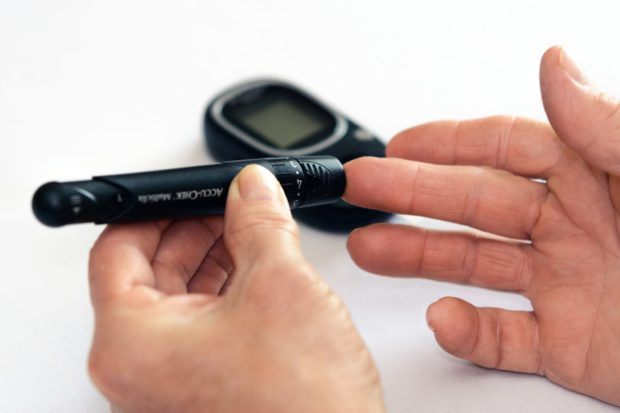Type 2 diabetes is the most common kind of diabetes. According to the CDC, about 37 million Americans are living with diabetes (about 1 in 10), with 90-95% having Type 2 Diabetes. Including Metformin, few interventions are available. However, due to global supply chain issues and soaring demand, there is currently a global shortage of drugs intended to treat this condition. This situation has forced those affected by the condition to go without medication or find alternatives. Unfortunately, these alternatives are not as effective as the drug known as Ozempic.
However, the reason Ozempic is rising in popularity isn’t increasing diabetes rates. Instead, it is because people take it for weight-loss purposes. Dubbed “a miracle diet drug,” #Ozempic has gained 360 million views and counting on TikTok, with Twitter owner Elon Musk even citing it as one of the reasons he shed 13 kg.
What is Ozempic?
Ozempic is an injectable, prescription medication that physicians prescribe to patients for the treatment of Type 2 Diabetes. Research shows that, when paired with a proper diet and exercise, it can improve blood sugar in those affected by Type 2 Diabetes.
How Does It Work?
Ozempic binds to glucagon-like peptide-1 (GLP-1) receptors and stimulates insulin release from the pancreas when you need it. This drug lowers your blood sugar levels by reducing the amount of sugar released by your liver. It also slows down food leaving your stomach, which plays a role in preventing blood sugar spikes.
Semaglutide is the active ingredient. It helps to prevent strong fluctuations in blood sugar levels, along with the effects of high and low blood pressure. It is a form of GLP-1.
Semaglutide
According to Dr. Caroline Apovian, past president of the Obesity Society and the adjunct Professor at Boston University’s School of Medicine, semaglutide is “a synthetic form of a naturally occurring gut hormone.” Mimicking GLP-1, it is responsible for targeting the area of the brain regulating appetite and food intake.
GLP-1 Hormone
This is a physiological incretin hormone from the lower gastrointestinal tract. Released in response to food intake, it is known for stimulating the release of insulin after meals. It inhibits glucagon secretion, thus limiting blood sugar spikes.
Dr. Robert Gabbay is the Chief Science, and Medical Officer for the American Diabetes Association. According to Dr. Gabbay, semaglutide “slows down the emptying of the stomach, making people feel full faster and tend to eat less.”

This links to how the drug showed potential as a weight-loss medication in its initial trials.
FDA Approved Substance
In 2021, the FDA approved Semaglutide, under the brand name Wegovy, for the purpose of chronic weight management for those with obesity, or who are overweight with at least one related condition (including high blood pressure, high cholesterol, and Type 2 Diabetes).
What is Wegovy?
Working just like the active ingredient of Ozempic, Wegovy regulates food intake and appetite by acting like the GLP-1 Hormone.
Side Effects
Although the FDA has approved these substances, the US Marketing authorization specifies that Wegovy carries the following side effects:
- Pancreatitis
- Gallbladder problems
- Acute Kidney Injury
- Thyroid tumors
- Hypoglycemia
- Constipation
- Diarrhea
The Shortage of These Drugs
Both Wegovy and Ozempic are now listed as “in short supply” on the FDA’s drug shortage website. Last year, Novo Nordisk informed the Therapeutic Goods Administration (TGA) that Ozempic would not be available in Australia from mid-November 2022 until the end of March 2023.
Due to the shortage of Wegovy, many have started receiving “off-label” prescriptions to obtain Ozempic. This affects the supply of the drug for those who need it for the treatment of diabetes. “Off-label” refers to the prescription of a drug for a purpose that is different from that for which it has been officially approved.
The Misuse of Prescribed Substances
This isn’t anything new. Ozempic isn’t the only prescription substance that people misuse for cosmetic reasons. Other misused substances include:
- Apetamin: Scientifically known as cyproheptadine, this syrup is a prescription drug that is widely misused as a supplement for body enhancement, “promoting an hourglass figure” and weight gain. The FDA has approved it for the treatment of various allergic reactions and acting as an off-label treatment for psychiatric conditions including serotonin syndrome. If overdosed, this drug may cause Central Nervous System (CNS) depression and sedation, along with anticholinergic syndrome (with accompanying symptoms including flushing, dilated pupils, and a dry mouth)
- Vitamin B12 Injection: Scientifically known as Cyanocobamin, Vitamin B12 is required for the formation and maintenance of red blood cells and DNA. Typically prescribed to combat fatigue and help boost energy levels, many tend to misuse this vitamin due to its ability to encourage cell reproduction, even skin tone, and reduce acne (which is the reason it is no longer available as an over-the-counter intervention). Misuse of this injection can lead to pulmonary edema, gastrointestinal problems, mood swings, hypertension, and muscle weakness.
Available Alternatives
With a shortage of Ozempic, health experts have been prescribing other GLP-1 agonists to their patients. This includes Dulaglutide, Tirezepatide, Liraglutide (injected daily) and Semaglutide (taken orally daily). According to Nicole Schneider, a diabetes nurse practitioner in Madison, Wisconsin, “the shortage of Ozempic has been frustrating for patients”.
Novo Nordisk, the parent company that makes Ozempic, released a statement saying it does not condone off-label use of the drug. The conversation gained popularity over the past few weeks due to social media and celebrities, including Andy Cohen, speaking out about the misuse of the substance for weight loss.
Even though there are other options available, Ozempic is one of the best treatments for Type 2 Diabetes. Many people opt for it due to its highly effective capabilities and affordability. As such, the shortage of this medication can be very dangerous, putting people’s lives at risk.
References
- Burki, T., 2022. Social media and misinformation in diabetes and obesity. The Lancet Diabetes & Endocrinology, 10(12), p.845.
- Chamberlin, S. and Dabbs, W., 2019. Semaglutide (ozempic) for type 2 diabetes mellitus. American Family Physician, 100(2), pp.116-117.



![women [longevity live]](https://longevitylive.com/wp-content/uploads/2020/01/photo-of-women-walking-down-the-street-1116984-100x100.jpg)










